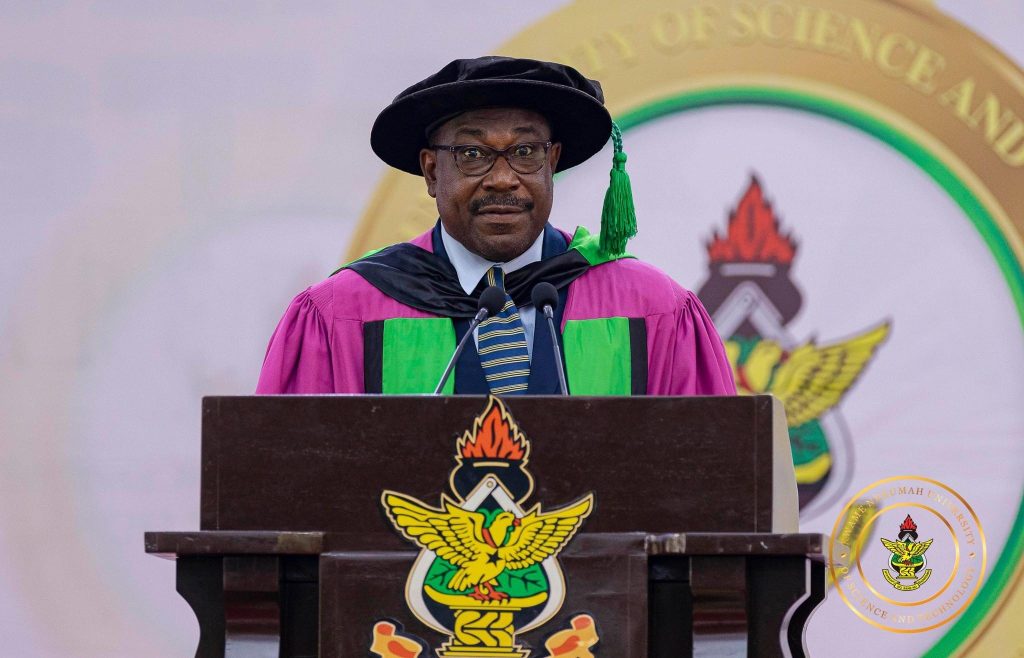By Florence Afriyie Mensah
Kumasi, Nov 21, GNA – Graduates have been advised to continue building on knowledge and skills to stay relevant as the world continues to advance rapidly with Artificial Intelligence (AI) and other technologies shaping every discipline.
Professor Dadson Awunyo-Vitor, Provost, College of Agriculture and Natural Resources at the Kwame Nkrumah University of Science and Technology (KNUST), who made the call, said as the
world continued to face challenges, advanced talents could only be the solution to addressing societal challenges.
Addressing graduands of the College at the KNUST 58th Congregation ceremony in Kumasi, he indicated that with the growing student population, the College would also have to adopt innovative approaches to teaching and learning as well as adjust projects to address existing gaps.
The College, he said, would continue to lead in advancing agricultural production, rural development and sustainable resource management through teaching, training, research, and knowledge extension.
Prof. Awunyo-Vitor added that the KNUST College of Agriculture and Natural Resources also provided mentorship programmes within faculty, enhanced entrepreneurial schemes, knowledge acquisition, and the promotion of positive student attitudes. This year, the College presented 1,393 undergraduate students made up of 927 males and 466 females, for graduation.

The Faculty of Agriculture graduated 861 students, while the Faculty of Natural Resources graduated 517. Out of these numbers, 168 students had first class, 687 students got second-class upper, 513 attained second class lower and 25 graduated with a pass. Prof. Awunyo-Vitor, touching on grants and funds the College secured over the last year, said it was significant and commendable.
They include a $91, 300.50 for research project, €97,475 from the European Union (EU) for climate resilience project, GH₵1.2 million from the Ghana School Development Fund for a poultry and aquaculture development plan.
Again, the College won 499,500 Canadian dollars from the International Development Research Centre for actionable research for the impact of Culturally Responsive Teaching Practice.
Mr. Alloysius Attah Bio, Chief Executive Officer and co-founder of Farmerline, urged the graduates to envisage agricultural studies as a lucrative career path and embrace it for national development.
He said there were numerous uncharted areas within the field of agriculture, including climate-change transformation possibilities, precision agribusiness, smart agri-production and processing among others.
GNA